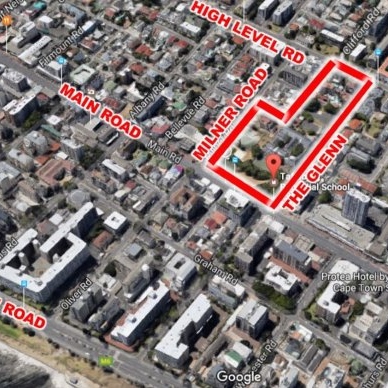
News

Phyllis Jowell move to Tafelberg hangs in the balance
TALI FEINBERG
The school took a decision a while ago to optimise its current location in Camps Bay pending the outcome of the case. This was because it “can’t operate in strategic limbo”, says PJJDS director Lance Katz. However, “the original motivation for Tafelberg remains, and would be a big boost to the school”, he says.
Reclaim the City and Ndifuna Ukwazi (NU) took the province and the City of Cape Town to court for selling the former Tafelberg school property to PJJDS for R135 million in 2017 instead of using it for social housing.
The human settlements department launched a separate case against the province for not consulting the national minister prior to making the decision to sell. Matters were eventually heard in the Western Cape High Court last week.
NU is a non-profit organisation that works to advance urban land justice in Cape Town. Reclaim the City is a movement of tenants and workers to end displacement from well-located areas and to secure access to affordable housing.
After five days of court proceedings, Judge Patrick Gamble said the earliest possible time for a decision would be in May or June 2020.
“You’ve given us lots to think about, it’s going to take time,” Gamble said. “This matter has huge ramifications. We would like to encourage legal representatives and parties not to lose sight that this case has a long way to go. We encourage the parties to engage with each other as much as possible to see if there’s any aspect that can be resolved together,” he said.
The PJJDS is a small play school and primary school that caters to children from the ages of 18 months to Grade 6, and blends secular and religious education. The school is situated in a relatively small space at the back of the Camps Bay shul, and would be better suited to a larger more central area like Tafelberg.
When PJJDS tendered for the site, its leadership had no inkling of the dispute that would erupt. “At the time of the PJJDS tender for Tafelberg, there was no public controversy surrounding the Tafelberg site,” Katz told the SA Jewish Report.
“In May 2015, the Western Cape government issued a tender to dispose of the property. PJJDS tendered in good faith, and was selected as the preferred bidder based on the rules and criteria of the tender. Objections to the province’s disposal of the site emerged only after PJJDS had already been selected as the preferred bidder,” says Katz.
He says the Tafelberg site represents a “once-in-a-generation opportunity to address a broad range of vital Jewish community needs along with other benefits to the wider Capetonian population. PJJDS had been looking for an alternative site as a result of town planning problems and capacity issues. The school had exhausted all avenues to expand on its current campus or find an alternative site within the catchment area.
“When the Tafelberg site was put up for sale by the province, it gave new hope to PJJDS for a viable solution, hence its decision to bid. It is already zoned for a school, has a school building which we plan to upgrade, and is very well-located in the heart of the school’s catchment area. Added to this, there is a plan for the possible relocation of Jewish old-aged facility, Highlands House, to Tafelberg.
“Everybody agrees that housing is a critically important basic need, and the province and city have a long way to go in addressing it,” Katz says. “For our part, should we be successful, we have committed to building 44 affordable housing units on the site entirely at our own cost without any reliance on scarce state resources. This is almost four times as many units as existed previously in Tafelberg,” he says. This was also explained thoroughly in court.
“It’s unfortunate that we have been drawn into a matter not of our choosing, and that at times, particularly early on, the dispute was wrongly positioned as a ‘Jewish community versus social housing’ debate.
“However, as time has passed, this has settled down, and the focus has shifted away from the Jewish community to the real issue of the case which is where and how national government, the province, and the city implements a coherent, efficient, and sustainable housing strategy. Also, it has moved to whether in this context, the decision of the province to sell Tafelberg to PJJDS was permissible and valid.”
He says it’s important for the community “to be patient, to respect the process, and respect the diversity of opinions that exist within and without our community on this matter. The school itself has been successful in minimising the impact of the case on pupils, parents, staff, and the governance structures of the school.”
A number of Jewish activists vehemently protested against the sale to PJJDS, and more than 250 Cape Town Jews sent a petition to the Western Cape government in March 2017, saying, “We, Jewish Capetonians, call for social housing in Sea Point and on other sites in an inclusive Cape Town.”
However, this group appears to have dissolved. One of the group’s leaders, Daniel Linde, says it has “not been active in years. It was really organised to make a statement of support. It was never a formal group, just a group of people expressing support for Reclaim the City’s case. Time has lagged between then and the case being heard.”
NU Executive Director Mandisa Shandu told the SA Jewish Report, “Our position in relation to Tafelberg is that land is a critical transformative tool. This position held by NU is irrespective of the identity of the purchaser. The challenge in the Tafelberg matter primarily concerns the state’s constitutional obligation to redress spatial injustice and advance access to affordable housing.”




